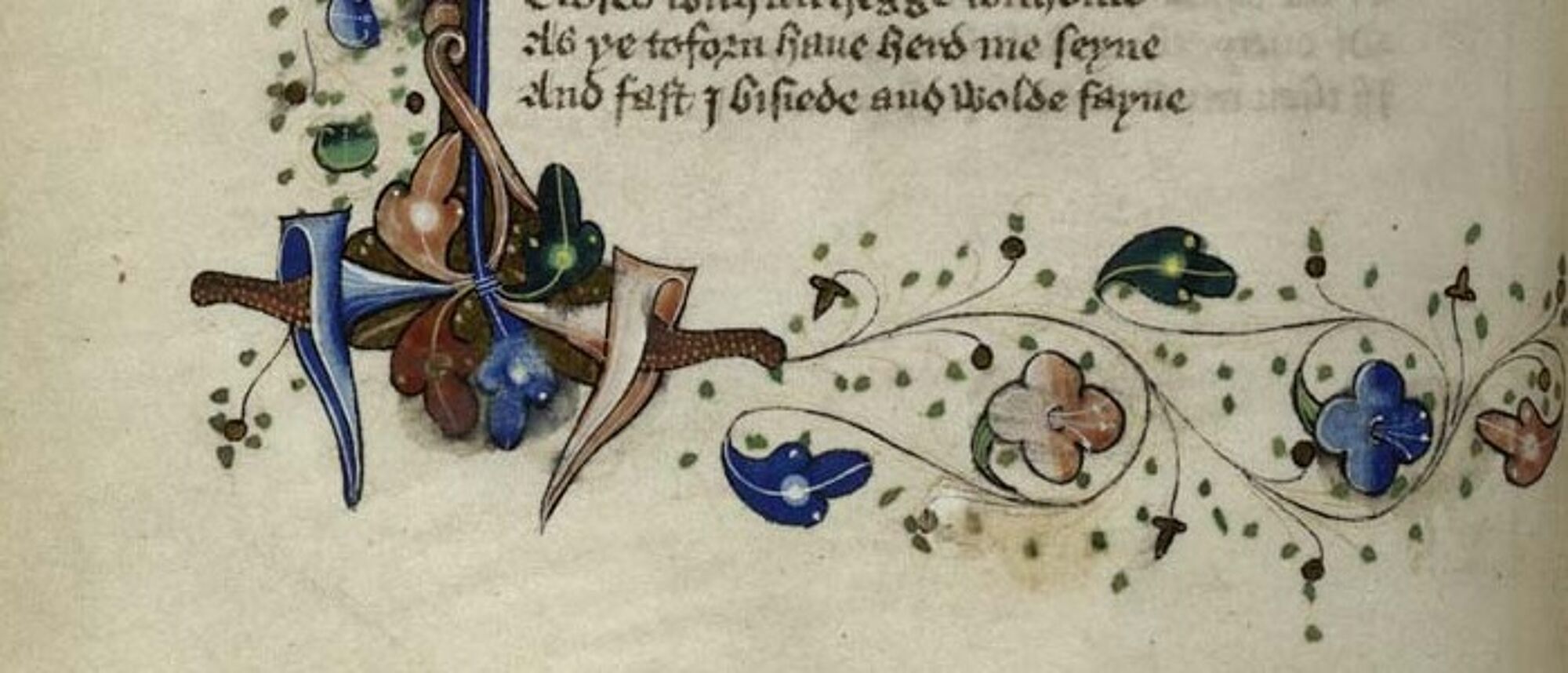
English Literature
Undergraduate courses
Shakespeare and his Contemporaries: Playing With History
Course overview
This Senior Honours course examines a range of sixteenth- and seventeenth-century history plays by Shakespeare and his contemporaries, including Christopher Marlowe, John Ford, and John Fletcher. Students are asked to explore the appeal of history as a source for early modern playwrights; to examine how history would be represented and reshaped on an early modern stage; and to consider how potentially risky the reinterpretation of history could be for playwrights in the early modern period.
Course convener Dr Katherine Heavey writes:
“The course stretches students and allows them to explore an influential form of early modern drama, via some of the period's most complex and exciting plays.”
Writing the English Revolution (1640–1660)
Course overview
This course examines the writings of John Milton and his contemporaries - including John Dryden, Andrew Marvell and Thomas Hobbes - within the context of the English Revolution and its aftermath. These writings, from pamphlets to poetry, were at the heart of debates on politics, religion, marriage, monarchy and civil society. Students will also be encouraged to develop independent research skills.
Course convener Professor Willy Maley writes:
"The courses offered at the University of Glasgow are innovative, distinctive, and non-canonical. Many, such as Writing the English Revolution, work with original and primary material, making use of Special Collections and electronic resources such as EEBO."
Postgraduate courses
Early Modern Mythmaking
Course overview
This course focuses on the early modern reception of Graeco-Roman myth in English literature, and the range of uses to which this mythic material was put. It begins with sixteenth- and seventeenth-century translations of Seneca and Ovid, and considers how and why translators like John Studley and Arthur Golding adapted their source texts. Students explore how and why mythology was adapted for the stage, in both comedy and tragedy, and how mythology was reshaped to advance various moralistic or political agendas. As well as drama by authors including Shakespeare, Christopher Marlowe, Thomas Kyd, and John Dryden, the course also features a variety of poetry by Richard Robinson, Isabella Whitney, and Jane Barker.
Course convener Dr Katherine Heavey writes:
“Via both well-known and lesser studied mythological adaptations, this course sheds new light on a key aspect of early modern literary culture, and attracts students from different MLitt backgrounds such as the Fantasy programme, as well as from Medieval & Early Modern Literature and Culture.”
Seventeenth-century Women’s Writing
Course overview
This course looks to highlight the importance of women's writing in seventeenth-century literature, politics and culture. Students will become familiar with a range of female authors, including Aphra Behn, Ann Bradstreet and Mary Rowlandson, who worked in a variety of forms. By evaluating the historical and cultural significance of seventeenth-century women's writing, students will engage in research on issues of gender, power and representation. With a well-populated Moodle, students can 'pick-and-mix' materials and topics that they wish to take further.
Course convener Professor Willy Maley writes:
"Early modern women writers have often been overlooked, or examined independently of their male counterparts as having different, more domestic concerns. They are rarely compared with major canonical figures such as Milton and Marvell, or viewed as key players in the political upheavals of the time. Yet women were active as prophets and pamphleteers in or around the radical groups of the period - the Diggers, Levellers, Quakers and Ranters - and played a prominent part in both royalist and republican causes, not just in England but in the wider Atlantic Archipelago. This course will follow the active role of women writers through the writings they produced, and the controversies they engaged in, often answering, or prompting, or inspiring male interlocutors."
Our Students
Amelia Howlett (PGT)
What drew you to medieval and early modern studies?
I have always been interested in the history of the early modern period, and how this is reflected in literature. I am particularly interested in the influence of religion on early modern literature, and how writers play with different genres to discuss contemporary events, with my current research focusing on how Shakespeare's comedies discuss aspects of the Protestant Reformation.
I was drawn to the masters course as it combined medieval and early modern studies, highlighting the significance of the relationship between the two periods.
What is unique and exciting about your courses?
The focus on medieval and early modern manuscripts. One of my favourite modules has been Early Modern Manuscripts for Research which introduces students to reading different styles of early modern handwriting, as well as various types of manuscripts and their construction. I really enjoyed the practical side of looking at texts, and what this can tell us about early modern culture. I think early modern manuscript culture is so exciting to study because it in this period that we see the transition from handwritten to printed manuscripts, and how this affects both authorship, and the reader's engagement with the text.
Have you used Archives and Special Collections and, if so, do you have some positive experiences to share?
I have only visited Archives and Special Collections with taught courses as a means of introducing students to the archive, but I found this really useful as the university holds such an extensive collection and students may not know where to begin. I found the staff really friendly and ready to help or answer any questions, so I would urge students to take full advantage!

